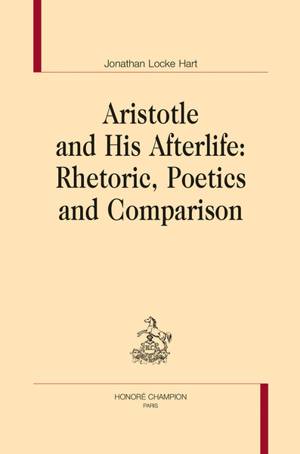
- Afhalen na 1 uur in een winkel met voorraad
- Gratis thuislevering in België vanaf € 30
- Ruim aanbod met 7 miljoen producten
- Afhalen na 1 uur in een winkel met voorraad
- Gratis thuislevering in België vanaf € 30
- Ruim aanbod met 7 miljoen producten
Omschrijving
Aristotle and His Afterlife : Rhetoric, Poetics and Comparison focuses on these elements expressed in the title and examines particular comparative contexts in Aristotle, such as politics and how natural slavery relates to ethics and the European exploration and settlement of the New World and how that is connected with hybridity in the Americas. More specifically, the volume analyzes Book Three of Rhetoric, which contains a discussion of style, something discussed earlier, for instance, in the manuscript notebooks of Samuel Taylor Coleridge, William Gladstone and Charles Stearns Wheeler in England and New England from about 1819 to 1840. After examining style in Rhetoric and these comparative discussions on natural slavery (politics), hybridity (ethics) and Aristotle and Shakespeare in terms of history and literature as performance, the book concentrates in later chapters on Aristotle's reception (his afterlife) in texts. There are, throughout, comparative elements of antiquity and modernity and of English and other languages, literatures and other cultural contexts and of literature and other fields, of theory and practice. Aristotle uses a comparative method in Poetics and in Rhetoric when he discusses poetry and the uses of language in different fields and genres. His interest in comparison occurs across the disciplines.
Specificaties
Betrokkenen
- Auteur(s):
- Uitgeverij:
Inhoud
- Aantal bladzijden:
- 315
- Taal:
- Engels
Eigenschappen
- Productcode (EAN):
- 9782745351722
- Verschijningsdatum:
- 29/11/2019
- Uitvoering:
- Paperback
- Afmetingen:
- 160 mm x 240 mm
- Gewicht:
- 1001 g

Alleen bij Standaard Boekhandel
Beoordelingen
We publiceren alleen reviews die voldoen aan de voorwaarden voor reviews. Bekijk onze voorwaarden voor reviews.











